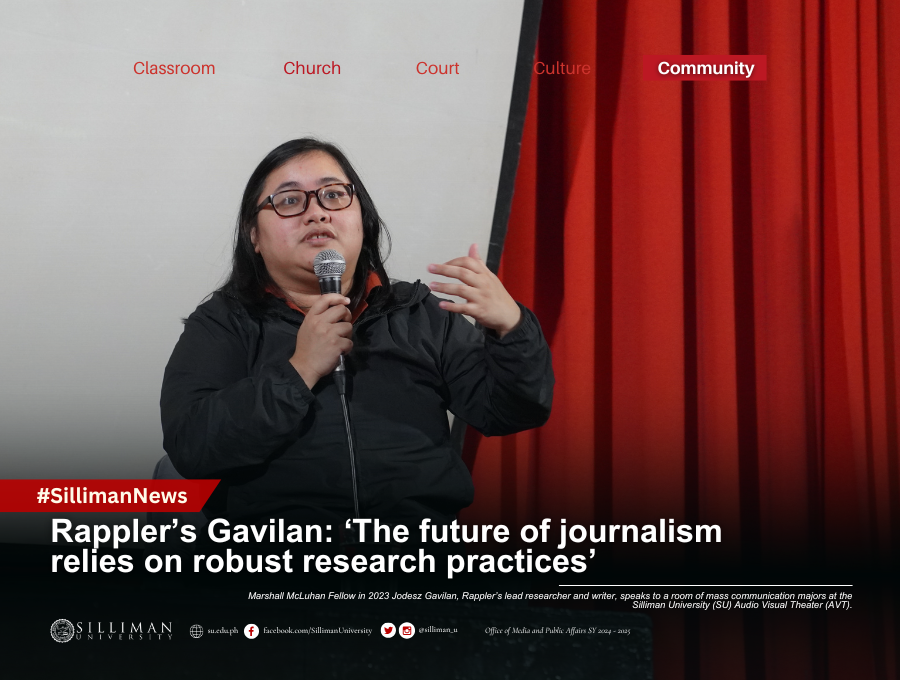
Rappler’s Gavilan: ‘The future of journalism relies on robust research practices’
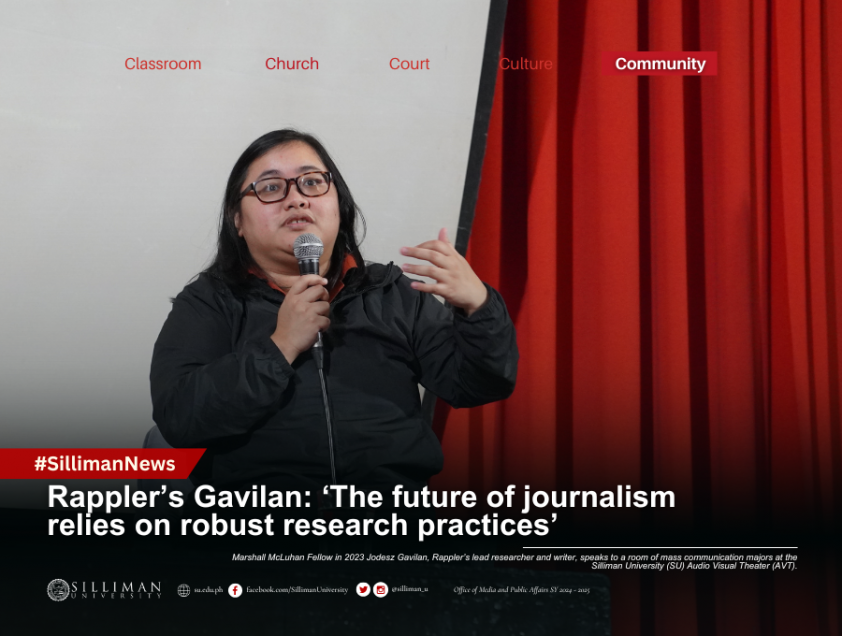
Marshall McLuhan Fellow in 2023 Jodesz Gavilan urged a room of mass communication majors and future investigative and human rights reporters to employ rigorous research methods in their respective journalism practices.
Held at the Silliman University (SU) Audio Visual Theater (AVT) on February 19, 2025, Gavilan’s lecture titled, “Data and Journalism: Utilizing Open Source and Online Research for Human Rights and Investigative Journalism,” aimed to underscore responsible research using social media and other online sources as a fundamental aspect of journalism.
The Rappler investigative writer and lead researcher reminded students that mastery of research is tied to the accuracy of a news report and a reflection of the rigor that comes with it.
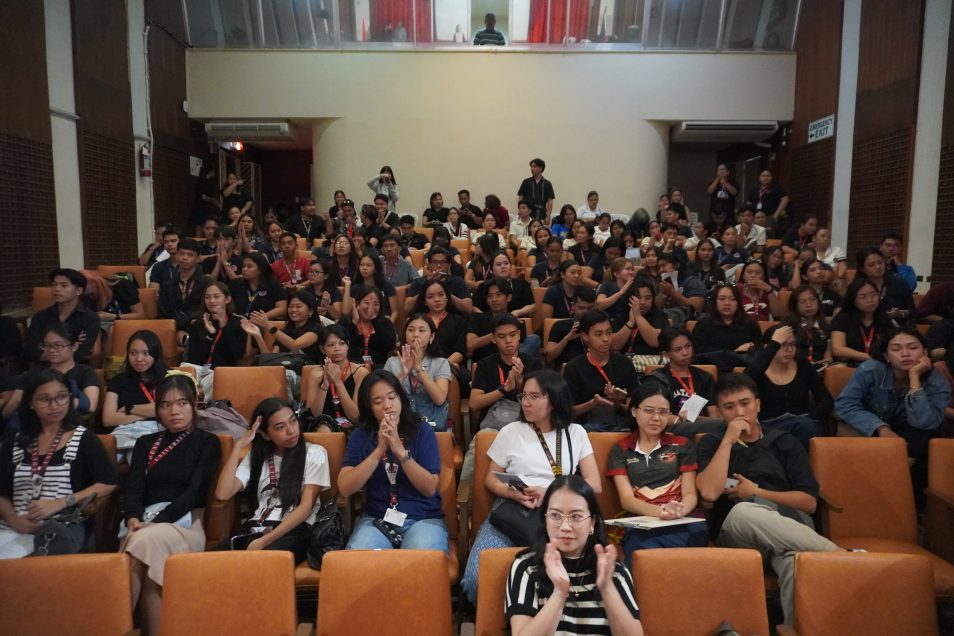
Mass Communication participants from different universities in Dumaguete (e.g., SU, Negros Oriental State University (NORSU), Foundation University (FU), and Colegio de Santa Catalina de Alejandria (COSCA)) gather to attend Gavilan’s lecture at the AVT.
Information, Galvin explained, can be found not only through primary means (e.g., government official documents, court records, person with direct knowledge) but also through secondary means (e.g., expert opinions, news reports).
In the online age, information is at any online user’s fingertips.
“The ‘he said, she said’ story can only do so much,” Gavilan said, referring to gathering information primarily through interviews and challenging common misconceptions in journalism.
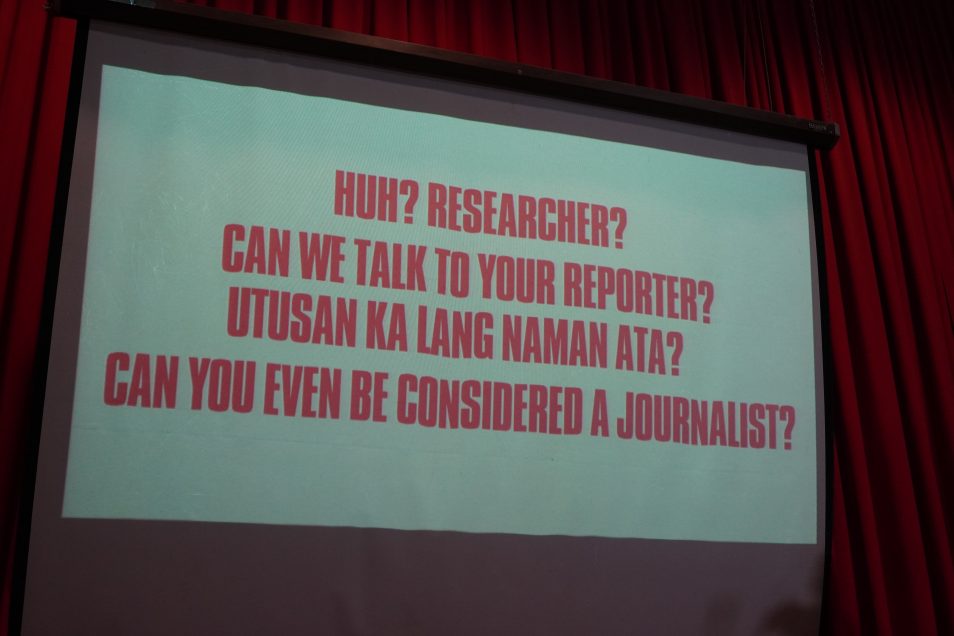
Questions posed in one of Gavilan’s slides question the credibility of researchers as journalists. (Huh? Researcher? Can we talk to your reporter? Aren’t you just a messenger? Can you even be considered a journalist?)
Using “Search operators” can refine searches online, allowing journalists to gather both primary and secondary sources. Search operators are a “string of characters that help narrow down searches online.”
For instance, a quick search of “Jodesz Gavilan” on any online search engines (e.g., Google) enclosed in double quotations and the string “inurl:(website)” (i.e., “inurl:www.rappler.com”) will generate mentions of Jodesz Gavilan mined from the Rappler website alone.
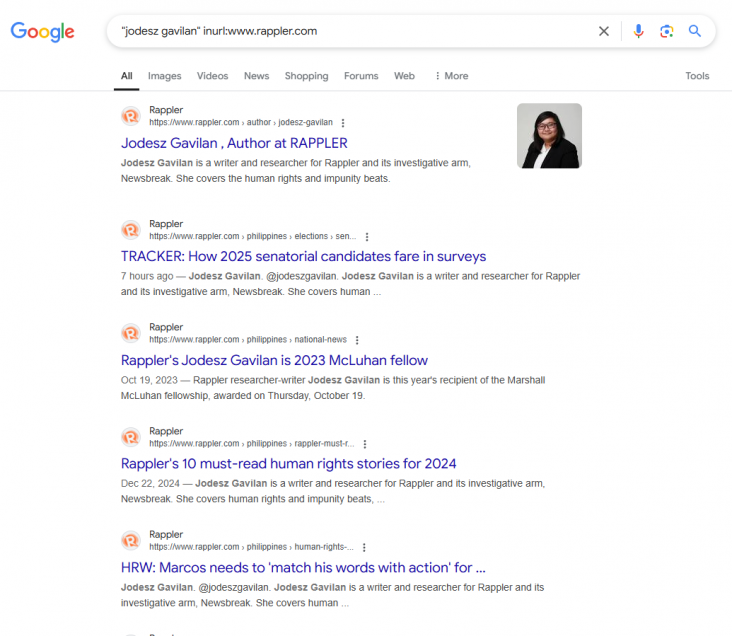
Search operators help narrow down research of data and other information online. In this case, searching for “Jodesz Gavilan” on all Rappler pages using search operators (see example on the search bar) yields specific page results.
Compared to a simple keyword search on Google, for instance, using search operators can be more efficient for researchers and yield more specific results, depending on the intent of the research.
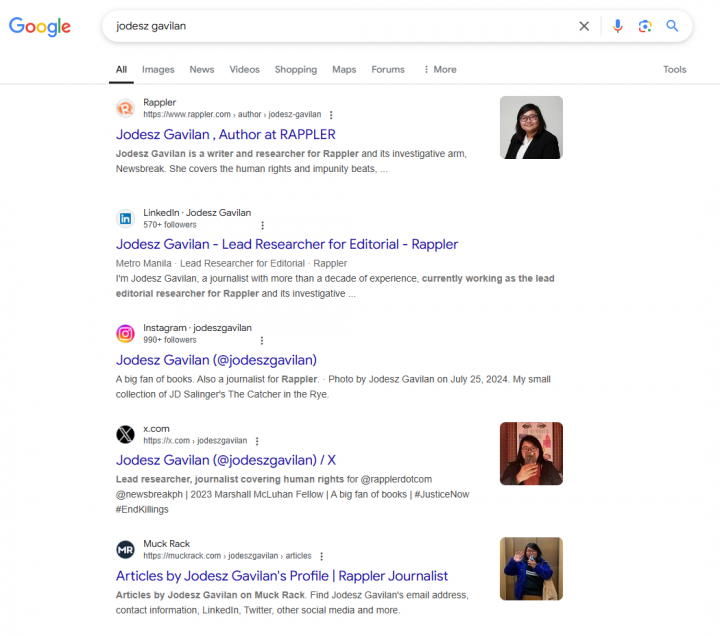
A general keyword search of “Jodesz Gavilan” on Google without using search operators yields results from different online pages.
Open source investigations, on the other hand, defined as the “collection and analyses using data collected from publicly available information and resources,” are also another effective method for gathering information by utilizing social media posts, online news articles, or online databases, one that Gavilan has utilized in her career of more than a decade at Rappler.

Gavilan’s one of many news articles on Rappler shows the power of utilizing search operators online to access important information and other documents. The article can be accessed here.
Gavilan enumerated four important roles of research in investigative journalism and human rights reporting: (1) gathering and verifying evidence and information, (2) documenting violations and uncovering injustice, (3) identifying patterns and connections, and (4) enhancing the depth and impact of stories.
According to her, “Continued innovation and ethical responsibility in research will drive the evolution of investigative and human rights reporting.”
Gavilan was awarded the 2023 Marshall McLuhan Fellowship by the Embassy of Canada in the Philippines for her “unique commitment to investigative journalism, to informing the public about decisions and policies that affect their lives in support of the public interest.”
As a journalist covering human rights and impunity for Rappler and its investigative division, Newsbreak, she has produced in-depth reports on topics such as former President Rodrigo Duterte’s war on drugs, the International Criminal Court, and the United Nations Human Rights Council.
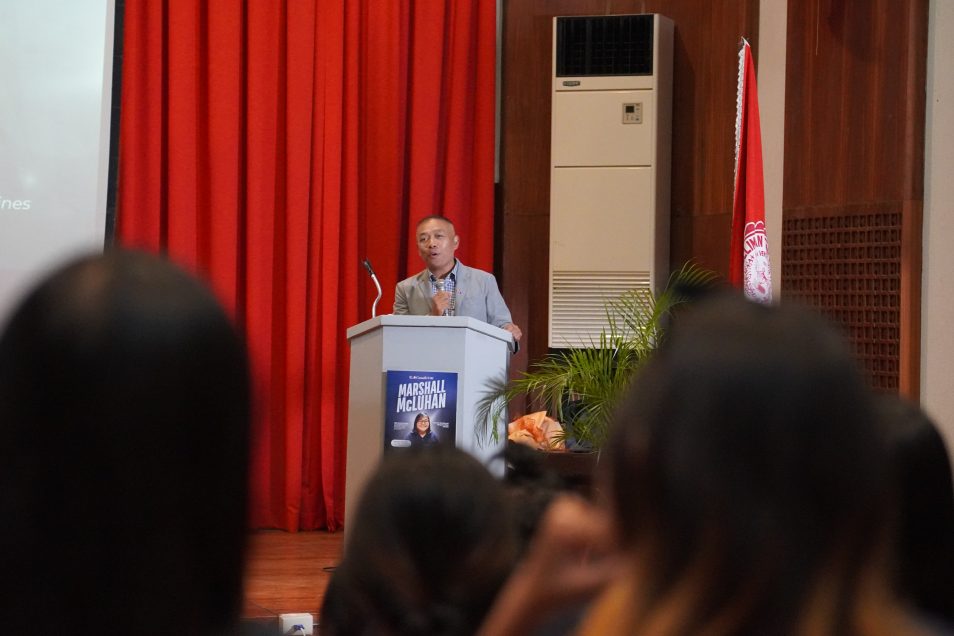
Carlo Figueroa, Senior Public Affairs Officer of the Embassy of Canada in the Philippines, introduces the lecture speaker.
The Canadian Embassy in the Philippines hosts the McLuhan Forum annually. According to Carlo Figueroa, Embassy of Canada in the Philippines senior public affairs officer, “The McLuhan Forum is a venue to recognize and celebrate excellent work in local journalism as shown by our speaker’s work and her organization, especially in advancing the investigative reporting, explanatory reporting, with depth substance.”
The McLuhan Fellowship was first awarded by the Embassy in 1997 to recognize excellence in Philippine media.
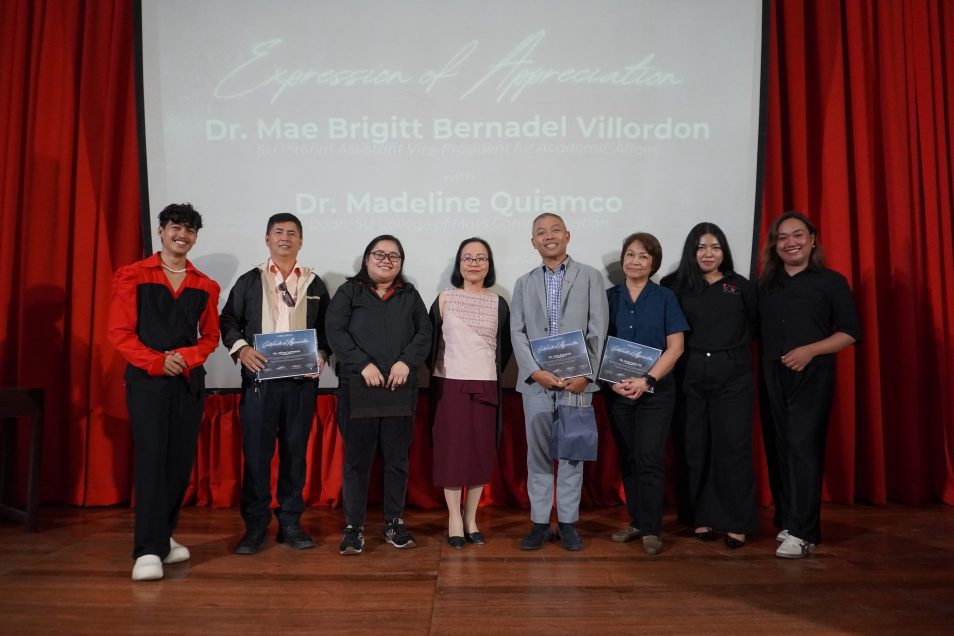
SU Mass Communication students pose with panel reactors Oliver Lemence (second left) and Irma Faith Pal (third right), Jodesz Gavilan (third left), Dr. Madeline B. Quiamco (center left), and Carlo Figueroa (center right) after the lecture.
Gavilan’s lecture concluded with panel reactions led by Oliver Lemence, former Public Information Officer of Negros Oriental, and Irma Faith Pal, Dumaguete MetroPost managing editor and faculty member of the College of Mass Communication.
The Marshall McLuhan Forum Series on Responsible Media was hosted at SU by the College of Mass Communication (CMC) under the leadership of Dr. Madeline B. Quiamco, CMC dean, through the Kapunungan sa mga Mass Communicators.
Present at the event were Dr. Mae Brigitt Bernadel L. Villordon, interim assistant vice president for Academic Affairs (AVPAA); Rev. Jonathan R. Pia, SU Church senior pastor; faculty members of the CMC; CMC alumni; and faculty and students of Negros Oriental State University (NORSU), Foundation University (FU), and Colegio de Santa Catalina de Alejandria (COSCA).


